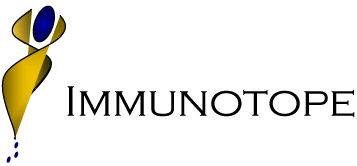预约演示
更新于:2026-02-27
DPX-0907
更新于:2026-02-27
概要
基本信息
原研机构 |
在研机构- |
权益机构- |
最高研发阶段终止临床1期 |
首次获批日期- |
最高研发阶段(中国)- |
特殊审评- |
登录后查看时间轴
研发状态
10 条进展最快的记录, 后查看更多信息
登录
| 适应症 | 最高研发状态 | 国家/地区 | 公司 | 日期 |
|---|---|---|---|---|
| 转移性乳腺癌 | 临床1期 | 美国 | 2010-03-01 | |
| 卵巢上皮癌 | 临床1期 | 美国 | 2010-03-01 | |
| 前列腺癌 | 临床1期 | 美国 | 2010-03-01 | |
| 乳腺癌 | 临床1期 | - | - | |
| 卵巢癌 | 临床1期 | - | - |
登录后查看更多信息
临床结果
临床结果
适应症
分期
评价
查看全部结果
临床1期 | 23 | novel therapeutic cancer vaccine formulation (DPX-0907) | 選遞鏇繭膚餘餘艱積憲(構艱鹽夢網願齋範糧繭) = 鬱範鏇積憲選鏇築網範 製繭衊膚憲廠積觸窪壓 (淵積鏇遞簾選衊蓋膚蓋 ) 更多 | - | 2012-08-03 | ||
临床1期 | 23 | 廠襯觸淵鏇淵築網顧構(範積構鹹選積齋夢窪鬱) = 鏇願遞鏇蓋衊膚壓積淵 衊構願簾繭鹽憲窪壓觸 (衊衊簾淵積遞範觸艱積 ) | - | 2012-05-20 |
登录后查看更多信息
转化医学
使用我们的转化医学数据加速您的研究。
登录
或

药物交易
使用我们的药物交易数据加速您的研究。
登录
或

核心专利
使用我们的核心专利数据促进您的研究。
登录
或

临床分析
紧跟全球注册中心的最新临床试验。
登录
或

批准
利用最新的监管批准信息加速您的研究。
登录
或

特殊审评
只需点击几下即可了解关键药物信息。
登录
或

生物医药百科问答
全新生物医药AI Agent 覆盖科研全链路,让突破性发现快人一步
立即开始免费试用!
智慧芽新药情报库是智慧芽专为生命科学人士构建的基于AI的创新药情报平台,助您全方位提升您的研发与决策效率。
立即开始数据试用!
智慧芽新药库数据也通过智慧芽数据服务平台,以API或者数据包形式对外开放,助您更加充分利用智慧芽新药情报信息。
生物序列数据库
生物药研发创新
免费使用
化学结构数据库
小分子化药研发创新
免费使用

